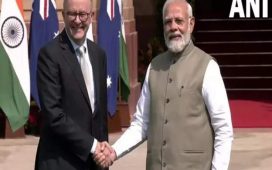In a submission to WTO on Friday, they said such a process has resulted in “differential access of delegations to the evolving text and discussions”.
Informal discussions do not allow for virtual participation of capital-based officials, which hinders the involvement of the developing and the least developed countries (LDCs) , they said.
“The drafting process deviates substantially from the accepted practice at the WTO,” the three countries said, adding that the “format and pace of the discussions have made it challenging” for most developing countries to effectively participate, consult with capitals, present their views, submit comprehensive proposals and review the progress.
WTO’s informal talks on dispute settlement reforms began in April 2022.

“More developing countries should join hands and raise their voice against this informal process as well as other issues, otherwise the outcome may not be in their interest,” said Abhijit Das, an expert on WTO issues.
The three nations pointed out that the informal meetings often overlap with formal WTO meetings and negotiations, the composition of the drafting groups has not been made public, members cannot submit their own textual submissions on any aspect that is of importance to them, and the allocation of topics and responsibilities in the drafting groups is done by the volunteer convenor.
This lack of record-keeping creates information asymmetry and has resulted in differential access for delegations to the evolving text and discussions, according to the submission.
“These process issues have led to the absence from the discussions of many of the historical asks of the developing countries and LDCs,” India, South Africa and Egypt said.
The process, they said, hampers the ability of delegations that cannot actively participate in the process, from following the evolution of and contributing to the formulation of the consolidated zero text.
“Our delegates have been participating in these ‘informal discussions’ based on the understanding that such participation is without prejudice to our position…require a multilateral discussion under a WTO body,” they said.
Insisting that the reform process should not make the dispute settlement system more onerous, the three countries said reforms should be and implemented as a comprehensive and balanced package, and address the concerns and interests of all members, especially developing countries and LDCs.








